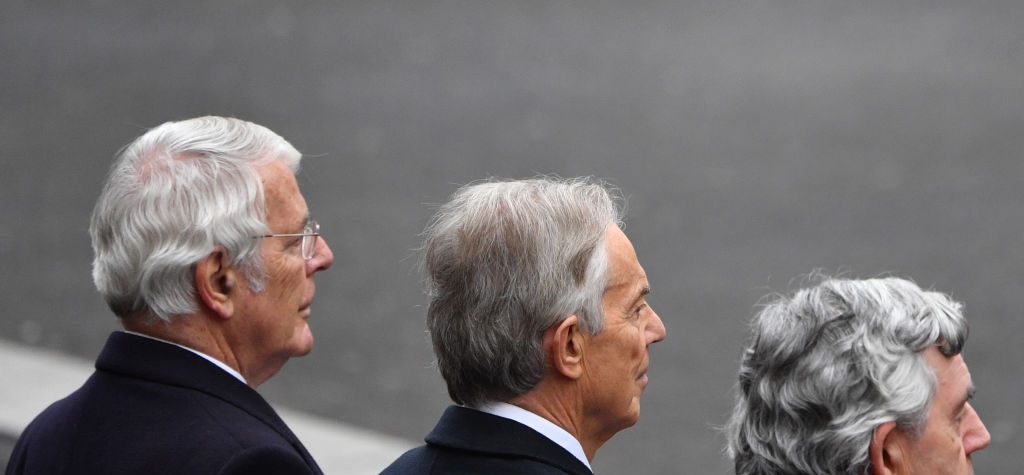If this book were written by any other politician you might call it a cynical cash-in, but it isn’t and it wasn’t. This highlights what is admirable about Gordon Brown. Since leaving office, while others have headed to JP Morgan or Meta, he has continued to commit himself to public service.
After losing the 2010 election, Brown spent five years as a backbencher and since 2012 has worked as a United Nations special envoy for global education. His decade at the top of international politics heavily informs his approach to this book.
Seven Ways to Change the World opens with the premise that the Covid pandemic “has already overtaken 9/11 and the global financial crisis as the event that has done most to shape our still-young century”, and that to beat it necessitates international cooperation. Famously, the virus does not stop at the border and therefore it is a mistake for our focus to be national. He estimates the cost of vaccinating the planet to be $60 billion, and the cost to the global economy of not doing so to be $1.2 trillion annually.
The book extends this principle – that national governments must act together to find solutions, and that it is in their interest to do so – into six other spheres: the secular stagnation of the Western economy; the climate crisis; educational inequality; the humanitarian crisis; tax avoidance and evasion; and nuclear weapons.
For example, given that national financial crises often have worldwide effects, Brown would like to establish “a permanent global liquidity facility” to be set up “on terms that will offer longer-term loans to in-need countries without the strict conditionality of current financial instruments”.
The title is a slight misnomer. There are seven issues that need addressing in this book, but there is really only one solution repeatedly advanced – a substantial increase in funding to either the UN or the International Monetary Fund (IMF).
Brown argues that if the UN’s peacekeeping budget ($8 billion) is put to one side, the organisation has only $2.5 billion remaining to fulfil its mandate of eradicating poverty, which Brown estimates is endured by up to 4 billion people.
The style of Seven Ways mimics Brown’s style as a politician. He is abreast of the details and earnest in his moral outrage, but heavy-handed in his presentation. There are no laughs here and, when he’s writing about various UN agen-cies and international quangos, you find yourself fighting through a thicket of acronyms.
Another shortcoming of Seven Ways is its shying away from the problem that, while it may be in the fuzzily defined “global interest” to fix these problems, it is not in every individual’s interest. Investment in education in the developing world would be good for the global economy, but not all capitalists want an educated workforce. There is still $1 trillion of investment in coal-fired plants yet to be recouped. In the chapter on tax evasion, he steadily builds the case that there is over $1 trillion hidden away in various scams, legal or not. In praising the “brave journalist” who brought the Panama Papers to public attention, he neglects to mention that she was killed in a car bomb 18 months later. Brown tends to smooth over any conflict of interest, preferring to present his policy suggestions as benefiting all.
Nevertheless there is much to be commended about this book. Brown has clearly done the research and it is hard not to be convinced that the problems detailed require supranational action. His analysis of US-China relations in particular stands out, cautioning against the bifurcation of the internet, in effect a new iron curtain between East and West.
Seven Ways ends on a note of optimism, but not a thoroughly convincing one. Ten months after publication of the hardback and already some of his hopes have been dashed. Cop26 was not the “decisive event” that Brown predicted; delegates could not even agree to phase out coal. Only 2 per cent of the developing world has received a Covid vaccination. Since the Russian invasion of Ukraine, it is harder to make the case that giving up nuclear weapons is not a security risk.
I can’t work out who this book is for. Readers interested in international affairs will be aware of the issues raised. Those who aren’t interested will probably remain that way. I appreciate Brown’s sincere attempt to grapple with the issues of our time; the trouble is, I often found myself respecting this book more than I was enjoying it.


